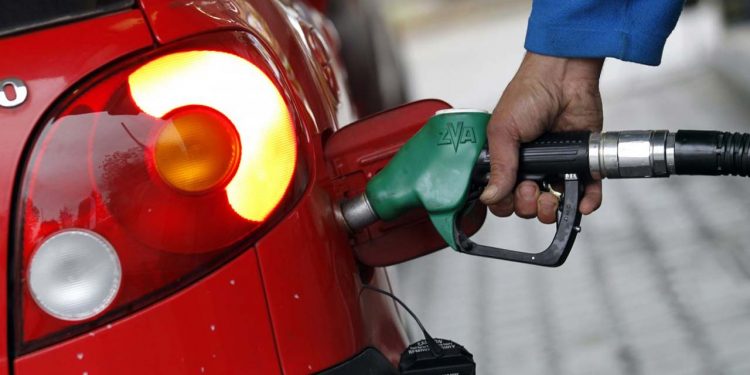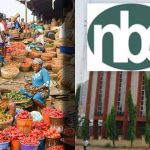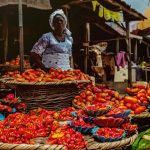The average retail price of Premium Motor Spirit (PMS), commonly known as petrol, surged to ₦1,037.66 per litre in June 2025, marking a steep 38.32% year-on-year increase from ₦750.17 recorded in June 2024. Month-on-month, prices edged up slightly by 0.96% from ₦1,027.76 in May, underscoring persistent cost pressures in the energy sector.
These figures are contained in the latest report released by the National Bureau of Statistics (NBS), titled “Premium Motor Spirit (Petrol) Price Watch.” The report highlighted glaring disparities in petrol prices across Nigeria’s 36 states and six geopolitical zones, suggesting that access, supply chains, and local distribution costs continue to influence pricing more than regulatory oversight or national market conditions.
Jigawa State recorded the highest average retail price of petrol at ₦1,107.52, followed closely by Ondo at ₦1,104.80 and Lagos at ₦1,100.29. These figures contrast sharply with prices in states like Yobe (₦950.60), Kogi (₦986.67), and Imo (₦987.86), which recorded the lowest averages. Such wide variations reflect a fragmented fuel distribution system, where location often determines cost more than national benchmarks.
The zonal breakdown further revealed notable trends. The North-West emerged as the most expensive region with an average retail price of ₦1,062.84 per litre. The South-East followed at ₦1,043.18, while the North-East posted the lowest zonal average at ₦1,020.15. North-Central stood at ₦1,021.83, suggesting slightly better affordability compared to other regions. These differences point to systemic inefficiencies in regional logistics and infrastructure, as well as the varying impact of fuel scarcity and dealer margins.
In an effort to ease cost burdens and stabilize the market, Dangote Refinery, Nigeria’s largest private fuel producer announced a second reduction in its ex-depot petrol price in July. The Lagos-based refinery slashed the price from ₦840 to ₦820 per litre, just nine days after its initial cut. These moves are part of a broader strategy to reduce pump prices and stimulate smoother downstream operations. However, the impact of these reductions on final retail prices remains limited, as transportation, taxation, and middlemen costs continue to drive up consumer prices.Amid soaring fuel prices, Nigeria’s broader inflation outlook showed signs of relief. The headline inflation rate dropped to 22.22% in June 2025, a decline from 22.97% recorded in May. Year-on-year, the drop is even more significant, with the inflation rate falling 11.97 percentage points from 34.19% in June 2024. This decline suggests a gradual slowdown in general price increases, driven by monetary tightening and improved food supply in some regions.
Yet, a closer look reveals that cost pressures are far from over. On a month-to-month basis, the inflation rate rose to 1.68% in June, up from 1.53% in May—indicating that while inflation is decelerating year-on-year, prices continue to rise at the consumer level. The average Consumer Price Index (CPI) for the 12 months ending in June stood at 26.58%, a modest improvement from 30.00% recorded in the same period last year.
The Central Bank of Nigeria (CBN), in its June 2025 Purchasing Managers’ Index (PMI) report, expressed concern that the rising cost of raw materials and energy inputs could fuel another wave of inflation. As manufacturing and service providers struggle to absorb surging input costs, many are passing the burden on to consumers through higher prices.
The apex bank warned that unless structural reforms are implemented particularly in energy supply, logistics, and industrial support, businesses will continue to face financial strain, and inflationary pressure may return in full force. Analysts have also pointed to Nigeria’s heavy dependence on imported refined petroleum products and persistent foreign exchange volatility as key contributors to price instability.With petrol prices breaching ₦1,000 per litre across much of the country and inflation showing mixed signals, the pressure is mounting on policymakers to implement more robust measures. These include expanding domestic refining capacity, addressing regional supply bottlenecks, enforcing pricing transparency, and accelerating the deregulation process in the petroleum sector.
While the Dangote Refinery’s price cuts offer temporary relief, their impact is diluted by a fragmented distribution chain and ongoing logistical challenges. If Nigeria is to achieve meaningful price stability and economic resilience, coordinated efforts between the government, private sector, and regional authorities will be essential in the months ahead.










